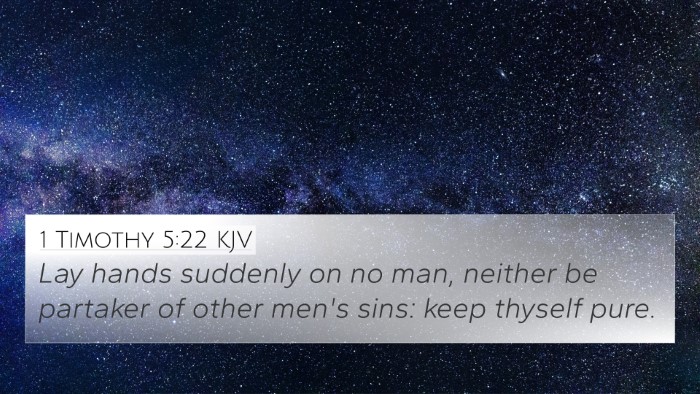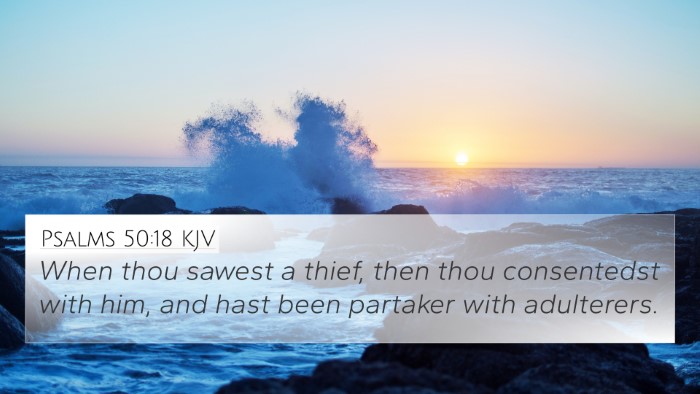Understanding 2 John 1:11
2 John 1:11 states, "For he that biddeth him God speed is partaker of his evil deeds." This verse serves as a warning about the consequences of supporting false teachings and the importance of discernment in Christian fellowship.
Summary of Exegesis
From a combined commentary perspective, we see a multiplicity of insights:
- Matthew Henry: Henry emphasizes the gravity of allowing false teachers into one’s community, illustrating that aiding them in any capacity directly implicates a person in their misdeeds. Such support can dilute the truth of the gospel.
- Albert Barnes: Barnes argues that the phrase "biddeth him God speed" refers to a more than casual greeting; it indicates an endorsement of the false teacher’s mission. The idea of being a "partaker" suggests a shared culpability in the sin of the false teacher.
- Adam Clarke: Clarke interprets this verse as a strong admonition against compromise. He explains that our interactions as believers should be rooted in truth and righteousness. To engage with falsehood is to endanger our own faith and integrity.
Related Bible Cross-References
This verse can be connected with various other scriptures that strengthen its warning:
- 1 Corinthians 15:33: "Be not deceived: evil communications corrupt good manners." This highlights the danger of associating with those who promote error.
- 2 Timothy 3:5: "Having a form of godliness, but denying the power thereof: from such turn away." This reinforces the call to distance oneself from falsehood.
- Galatians 1:8-9: "But though we, or an angel from heaven, preach any other gospel unto you than that which we have preached unto you, let him be accursed." A clear declaration against accepting any deviation from the true gospel.
- Matthew 7:15: "Beware of false prophets, which come to you in sheep's clothing, but inwardly they are ravening wolves." A direct warning about discernment in identifying false teachings.
- Romans 16:17: "Now I beseech you, brethren, mark them which cause divisions and offences contrary to the doctrine which ye have learned; and avoid them." This is a reiteration of the need for vigilance against divisive teachings.
- 1 John 4:1: "Beloved, believe not every spirit, but try the spirits whether they are of God: because many false prophets are gone out into the world." This verse emphasizes the necessity of testing teachings against God’s truth.
- Proverbs 13:20: "He that walketh with wise men shall be wise: but a companion of fools shall be destroyed." This aspect of companionship aligns with the repercussions of engaging with falsity.
Thematic Bible Verse Connections
The themes of discernment, fidelity to doctrine, and the dangers of falsehood resonate throughout scripture. Understanding 2 John 1:11 in conjunction with these verses fosters a deeper grasp of the Christian imperative to uphold truth.
Tools for Bible Cross-Referencing
To explore these and other related verses, utilizing a Bible concordance or a cross-reference Bible study guide can be highly beneficial. These resources aid in:
- Identifying Connections: Finding how different verses communicate and contrast themes.
- Enhancing Understanding: Providing broader contexts that illuminate the meanings of specific scriptures.
- Developing Sermons: Supporting sermon preparation with relevant, inter-connected biblical texts.
Conclusion
In summary, 2 John 1:11 serves as a crucial reminder of the perils of endorsing false teachings. It invites believers to be vigilant in their associations, emphasizing the interconnectedness of scriptural truths. By studying related verses, one can extract a deeper understanding of the importance of fidelity to faith and the dangers lurking in the subtleties of falsehood.






